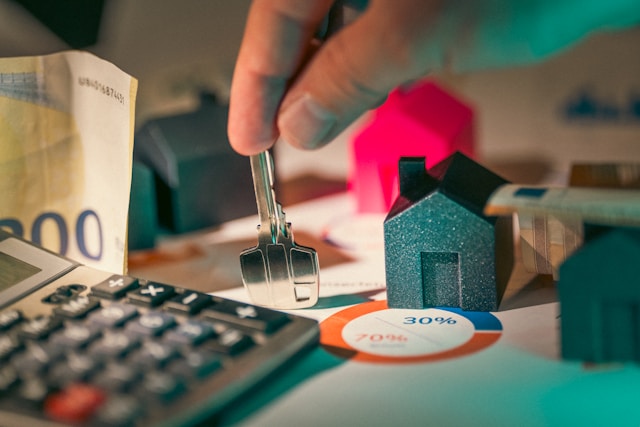For many UK expats, purchasing a property back in their homeland can be a complex and challenging process. With factors like mortgages, tax, fluctuations in the property market, and living in a foreign country to consider, it’s not a decision to be taken lightly. This article will explore the key considerations for UK expats looking to buy property back home, from the intricacies of the mortgage process to understanding the tax implications of such an investment.
Deciphering the Mortgage Maze
Securing a mortgage is integral to the property buying process for many people. However, for expats living abroad, the process can be more complex. Expats aren’t physically present in the UK, which can complicate communication and paperwork. Moreover, foreign income might not be readily accepted by all mortgage providers.
Lire également : How can you use the equity in your UK home to fund your retirement?
It’s important to research lenders who offer mortgages to expats, or work with a mortgage broker familiar with expat circumstances. Be prepared to provide more documentation than usual, as lenders will want to see proof of income and address in your current country of residence.
They may also require a larger deposit. While this can initially seem daunting, it’s all part of the process of securing a mortgage as an expat. Understanding these requirements ahead of time will save you from surprises down the line.
Avez-vous vu cela : What specific steps should UK homeowners take to comply with the latest energy efficiency regulations?
Understanding Tax Implications
Property taxes are a key consideration when buying a home in any country, and the UK is no exception. Expats need to be aware that buying a home while living abroad can have significant tax implications.
A crucial factor to consider is whether you will be buying the property as a second home or if it will be your primary residence when you move back to the UK. The tax situation can be vastly different in each scenario.
If the property is bought as a second home, it will be subject to Capital Gains Tax (CGT) when you sell it. On the other hand, if it is your main residence, you will be exempt from CGT. Additionally, expats need to consider the impact of Stamp Duty Land Tax (SDLT), which applies to properties bought in England and Northern Ireland.
It’s recommended to consult with a tax professional to understand the potential tax liabilities and benefits associated with your property investment.
Navigating the Property Market
The UK property market can be volatile and subject to rapid changes, impacting the price and availability of homes. It’s essential to keep an eye on trends in the city or region you’re interested in, as prices can vary dramatically.
Consider factors such as the potential for property price growth, the demand for rental properties if you plan to rent out your home before moving back, and the overall health of the local property market.
Seek advice from real estate professionals, and stay informed about the market trends. It’s vital to be aware of the state of the market at the time you’re thinking of buying.
Considering the Investment Potential
While the primary goal for many expats is to secure a home for their return, it’s also worth considering the property as an investment. The UK property market has historically proven to be a profitable investment, with consistent growth over time.
Investing in UK property can provide a steady income if you decide to rent the property before moving back. This income could cover your mortgage payments and potentially provide additional cash flow.
However, investment potential should not be the only factor in your decision. It’s also crucial to think about your long-term plans, personal circumstances, and the reality of managing a property from abroad.
Preparing for the Return Home
Finally, buying a property back home is a significant step in preparing for your return to the UK. This process can stir a mix of emotions as you navigate the logistics while managing the anticipation of coming back home.
Take the time to consider the lifestyle you want when you return. Think about the city or region that would best suit this lifestyle. Consider factors such as employment opportunities, proximity to family and friends, and local amenities.
Remember that while buying a property back home can be complex, it’s a journey that many expats have successfully navigated before. With careful planning, astute decision-making, and the right professional advice, it’s a journey that can lead to a rewarding return to your roots.
The Role of Real Estate Agents and Mortgage Brokers
Real estate agents and mortgage brokers play a critical role in the property buying process. They can guide and advise on everything from local property trends, availability, pricing, negotiations, to navigating the mortgage maze. Their expertise and inside knowledge can make all the difference when making a substantial investment such as a house.
When choosing a real estate agent, look for one with a strong reputation and extensive knowledge of the area. They should understand your needs and preferences and provide you with a range of suitable property options.
Mortgage brokers, on the other hand, can provide customized advice for your specific situation as an expat. They can help you find lenders willing to offer you a mortgage, based on your foreign income. Brokers can also assist you in gathering the necessary documentation to support your mortgage application. They are familiar with the complexities that expat mortgages entail, making them an invaluable resource in your property buying journey.
Foreign buyers should not underestimate the importance of a skilled real estate agent and a knowledgeable mortgage broker. They can make the complex process of buying property back home less daunting.
Property Management and Rental Income
If you plan on renting out your new property before moving back to the UK, having a professional property management company to handle it can be a significant advantage. They can take care of tenant screening, maintenance, repairs, and rent collection, making the process stress-free for you.
Renting out your property can also provide a consistent rental income. This income can cover mortgage repayments and maintenance costs, and even provide an additional income stream. It’s a practical approach to manage the financial burden of owning property abroad until you decide to move back home.
However, remember that being a landlord comes with its responsibilities and obligations. Make sure to understand the local laws and regulations related to property rentals in the UK. A professional property management company can help ensure you comply with all rules and avoid potential pitfalls.
Conclusion
Investing in property back in the UK can be a sound financial decision for many expats, despite the complexities involved. From deciphering the mortgage maze and understanding tax implications, to considering the investment potential and navigating the unpredictable property market, there are many factors to consider.
Working with experienced professionals such as real estate agents, mortgage brokers, and property management companies can help simplify the process. Additionally, staying informed about the market trends and being aware of the tax implications of your investment can help you make informed decisions.
Remember, while buying property back home can be challenging, it’s also an exciting step towards returning to your roots. With careful planning and the right guidance, you can successfully navigate the challenges and secure a piece of your homeland. You’ll not only have a place to call home when you return but potentially a profitable property investment too.
No matter where life takes you, the ability to buy property back home opens up opportunities for financial growth, stability, and a comforting sense of familiarity. As a UK expat, it’s a journey worth considering.






